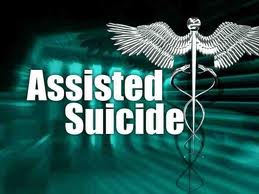Tags
assisted suicide, medical ethical dilemmas, medical interview questions, medical school interviews
Yesterday Yesterday MPs rejected a bill to legalise, assisted suicide. 118 MPs were in favour and 330 against plans to allow some terminally ill adults to end their lives with medical supervision.
Yesterday MPs rejected a bill to legalise, assisted suicide. 118 MPs were in favour and 330 against plans to allow some terminally ill adults to end their lives with medical supervision.
Pro-assisted dying campaigners said the result showed MPs were out of touch as polls show that about 75% of the public support it.
The bill proposed people with fewer than six months to live could have been prescribed a lethal dose of drugs, which they had to be able to take themselves. Two doctors and a High Court judge would have needed to approve each case.
Assisted suicide is in the news a lot and is often the subject of ethical scenarios at medical school interviews.
Arguments against assisted suicide
1.‘Thou shalt not kill’ is one of the oldest moral commands. It has been a key part of medical ethics for centuries. The original Hippocratic oath states ‘I will give no deadly medicines to anyone if asked, nor suggest any such counsel.’ Many religious people contend that only God has the right to give or take life.
2. Those that are infirm may be pressurised to die or made to feel selfish or a burden if there was this option.
3 Slippery slope arguments. The ‘slippery slope’ argument holds that if assisted suicide was practised for people like Mr Nicklinson [a man with locked in syndrome who was refused help to kill himself and eventually had to starve himself to death] then it would become acceptable to allow it for less clear cut cases and eventually you may end up with a situation as in Nazi Germany where those deemed to be defective were killed.
4. With good pain control and counselling, suffering will be minimised.
Arguments for assisted suicide:
1. The person’s right to autonomy, control over his or her life. According to polls most people in the UK feel that they should be able to have some control over when and how they die. In many philosophical traditions ‘egoistical suicide’ [death for one’s own reasons such as to avoid pain] is considered selfish and wrong. However the aim of ‘altruistic suicide’ which is carried out for the love of others or for the religion [eg Jesus praises a man who lays down his life for others [John 15;13] ] is more acceptable to most religions. It can be argued that someone who wishes to die in order not to be a burden is following the same principles.
2. Some, such as Debbie Purdy, who had multiple sclerosis, have argued that if her husband faced prosecution for helping her to commit suicide she would travel to Dignitas earlier while she could do so alone. However if the law permitted her to have help she would delay dying.
3. Even with the best palliative care [treatment of the dying] suffering and pain are common. Dr Ann McPherson, who set up the charity and website ‘Teenage Health Freak’ and supported a change in the law on assisted dying, died recently from pancreatic cancer. Her daughter wrote in the BMJ ‘our mum died slowly and in pain. …The law needs to change to allow terminally ill but mentally competent people the right to a more dignified death than my mum’.
Euthanasia
Active euthanasia is when death is brought about by an act – for example when a person is killed by being given a deliberate overdose of pain-killers.
Passive euthanasia is when death is brought about by an omission – i.e. when someone lets the person die. This can be by withdrawing or withholding treatment. Eg stopping a ventilator.
Active euthanasia is illegal while passive euthanasia is legal. ‘Thou shalt not kill but need’st not strive officiously to keep alive.’ [Arthur Clough 1850’]. It has been argued that often the moral difference between acts and omissions is tiny. The Catholic Church for example sees no difference between the two – ‘The act or omission which, of itself or by intention causes death in order to eliminate suffering constitutes a murder.’ [Catechism of the Catholic Church] NB In common language euthanasia is often used to mean active euthanasia.
What society thinks is usually reflected in the laws of a country. Assisted suicide is presently illegal but the view of the general population seems to be shifting with about three quarters of the population now reportedly backing assisted suicide. This is reflected by the lack of prosecutions of those helping loved ones go to Dignitas [the clinic offering assisted suicide in Switzerland]. ‘The law has a stern face but a kind heart’ is how Baroness Finlay described the present situation. However Lord Falconer has said:
‘No one has the stomach to enforce the current law, because it is inhumane and further provides no protection for the vulnerable. The threat [of prosecution] forces some people to die alone and earlier than otherwise for fear of what may happen to those who accompany them.’
The Director of Public Prosecutions was asked by Debbie Purdy a multiple sclerosis sufferer under what circumstances her husband would be not be prosecuted if he helped her travel to Dignitas. He produced a set of guidelines in 2009 in which he stated that the patient had to have shown that they had come to a ‘clear, settled and informed decision’ to commit suicide and that the loved one who aided them was entirely motivated by compassion.

Sooo happy I found your blog with my first two med school interviews coming up! Thanks for posting all these great ethical scenarios 🙂